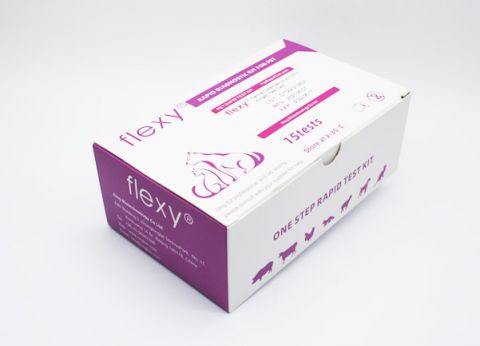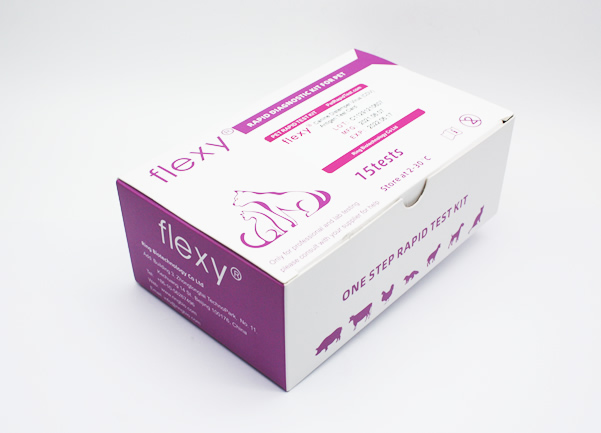
Bartonella henselae Real-time PCR Test Kit is to detect Bartonella henselae nucleic acid in canine and feline blood sample, which is rapid, accurate and easy-to-operate. Sensitivity 100%, Specificity 100%.
Basic information
Cat scratch disease (CSD), also known as cat scratch fever or bartonellosis, is caused by a bacterial infection. There are at least 8 species of Bartonella implicated in causing human disease, while Bartonella henselae is the most common species found in cats. CSD can affect humans, dogs, cats, and other animals. The disease got its name as it often is associated with a cat scratch. Transmission of the bacteria actually occurs through cat fleas and possibly other biting flies or ticks. The flea ingests blood containing Bartonella from an infected cat, the bacteria replicates in the flea and is shed in the feces. Those feces can infect humans through scratches or other abrasions in the skin, as well as through the eye.
Key facts of the Bartonella henselae Real-time PCR Test Kit
- Ready to use kits for the vet clinic
- No extraction required
- Result in 30min.
Bartonella henselae Real-time PCR Test Kit Components
| Item # | Item | Qty |
|---|---|---|
| 1 | PCR reaction solution | 120ul |
| 2 | Negative Control | 50ul |
| 3 | Positive Control | 50ul |
| 4 | Exogenous Gene Control | 50ul |
| 5 | Sample buffer | 1ml |
| 6 | Enzyme mix | 10ul |
| 7 | Kit user manual | 1set |
What are the signs of cat scratch disease?
The typical signs are mild fever, chills, and lethargy (fatigue) accompanied by enlarged lymph nodes and lesions on the skin or conjunctiva (the membrane that covers the white of the eye and inside of the eyelid). Most symptoms last for a few days, but the enlarged lymph nodes may persist for weeks or months.
Is there a vaccine or treatment for cat scratch disease?
There is currently no CSD vaccine available for cats or people. B. henselae is sensitive to a number of antibiotics. A combination of two different types of antibiotics is most often prescribed to treat infected humans. The disease is typically self-limiting, and the majority of mild cases will resolve without the need for antibiotics.
What steps can I take to reduce my risk of CSD?
- Keep your cat’s nails trimmed short.
- Keep all your pets on year-round flea control.
- Keep your cat indoors.
- Avoid rough play with your cat.
- Wash any bites or scratches immediately with soap or disinfectant.
Extended reading
- Cat Scratch Disease , CDC
- Cat Scratch Disease , Johns Hopkins Medicine




